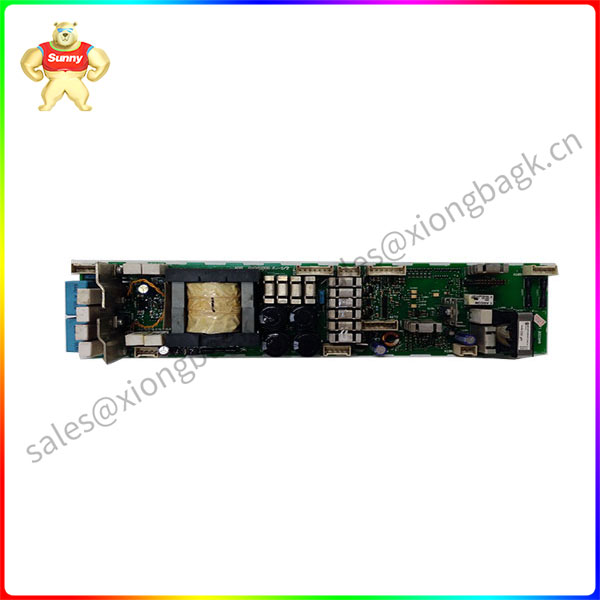36 Kr learned that recently, the domestic automation control solution supplier EF Kang announced the completion of more than 100 million yuan of B round financing, led by Sequoia Capital, Kai Venture Capital, Feitu Xinyuan investment with investment. This round of financing will be mainly used for product research and development and marketing.
Founded in 2016, EFC started with high-end servo drives, through independent research and development of PLC (programmable logic controller) core compiler, master the source code, promote the localization process of large and medium-sized PLC and high-end servo products, to provide customers in the field of industrial control with stable, reliable, easy to use high-quality industrial control automation products and services.
In terms of team, at present, the core team of EF Kang comes from an internationally renowned automation factory, and has been deeply engaged in the field of automation for a long time, with an average of more than 10 years of rich experience in R&D design and management and operation in the automation industry.
In recent years, under the support and promotion of relevant national policies, the scale of industrial automation control market has continued to expand, and 100 billion market capacity has broken out. According to relevant market data, China’s industrial automation control market size will be 183.7 billion yuan in 2018, is expected to grow to 236 billion yuan in 2022, including PLC, controller, industrial gateway, edge server and other core components have also entered the golden age of localization.

DSMB-01C
Especially in the field of high-end servo and PLC, because of its high technical barriers, the market has been Siemens, Schneider, Rockwell and other European and American players, as well as Panasonic, Ashkawa, Mitsubishi and other Japanese manufacturers monopolized and dominated, the market share of domestic medium and large PLC does not exceed 10%, servo controller localization rate is also lower than 40%, the overall localization rate is very low. It is the real bottleneck link in the current process of industry 4.0 localization.
On the one hand, servo involves drive and motor coordination, is the core technology to achieve automated precision and flexible manufacturing, from the positioning accuracy can be divided into high-end servo (multi-axis real-time <0.01 degrees), high-end servo (single-axis <0.01 degrees), low-end servo (<0.1 degrees), which high-end and high-end servo software architecture is better, For large-scale high-precision equipment, injection molding machines, packaging equipment and other systematic complex applications.
On the other hand, PLC is the core of automated mechanical control, which can enable mechanical equipment to automatically complete relevant operations according to logical and editable mechanical control instructions, and can be divided into large, medium and small three types of PLC, of which medium and large PLC can be used for complex logic control and continuous production process, and there are extremely high technical barriers.
Specifically, the medium and large PLC has very high reliability, not only needs to reach the average trouble-free time of millions of hours, but also needs to maintain operational stability in extreme environments such as high temperature, high humidity, collision resistance, anti-interference, etc., and needs to be selected according to the number of I/O, expansion capacity, control requirements, and faces a large number of communication and interaction needs.
At this stage, Siemens, Mitsubishi, Omron, Rockwell and other foreign giants have developed their own medium and large PLC systems, while most domestic players are based on the PLC software programming tools imported from Germany Codesys, which is similar to the Android in the industry. In the view of EFC, the purchase of foreign PLC compiler products has certain risks in terms of software compatibility and stability.
“From the overall trend, there are several reasons behind the localization of PLC.” Gao Bin, founder of EF Kang, told 36kR that first, under the epidemic environment, the delivery cycle of foreign manufacturers such as Siemens, Rockwell and Beckhoff has generally increased; Second, at present, a variety of factors have spawned the “anti-globalization” of the supply chain, and the domestic large and medium-sized PLC import dependence is high, and the industry risk is intensified; Third, the gradual increase in the price of imported products has squeezed industry profits; Fourth, state-owned enterprises pay more and more attention to industrial safety protection.
Therefore, EFC chooses self-developed PLC system to achieve industry breakthrough. “We should be the first company in China to fully self-develop medium and large PLC cores and achieve mass production.” ‘he said. At this stage, EFC has built three product lines of information layer, control layer and equipment layer, and successfully developed and mass-produced many products such as PLC, drive system, remote IO module and PAC (Programmable automation Controller).
Among them, EF Kang’s medium and large PLC product series adopts 100% self-developed PLC compilation platform and module, without import right of use cost, and has been verified by customers to achieve the replacement of imported first-line brands. Gao Bin mentioned that in the case of achieving the same performance and stability of foreign manufacturers, the product price of EF Kang medium and large PLC can be reduced by at least 50%.
Infocon’s servo product range includes drives and motors, featuring high-performance multi-axis structures, monitoring and fault diagnosis, disturbance self-elimination models, sense-free vector control, and support for high-end PLCS, while precisely regulated and stable servo systems are key to machine performance, durability and safety. In some scenarios, the volatility of EFC servo products is at least 50% lower than that of international manufacturers, and the price of the same type of products is more than 30% lower than that of foreign manufacturers.
 中文版
中文版




